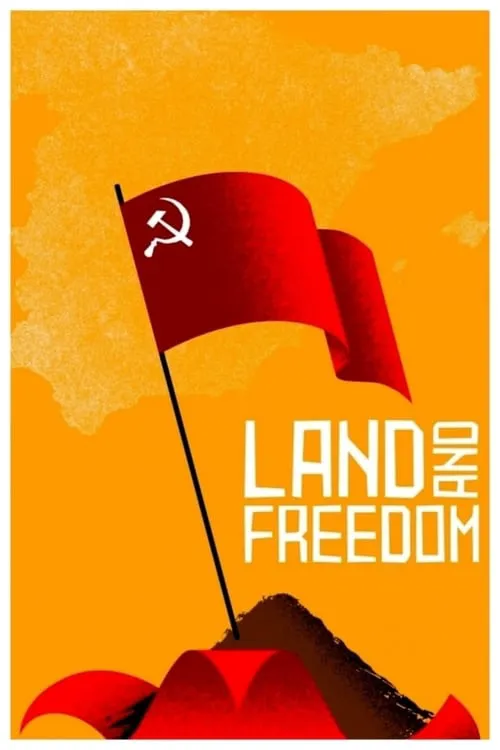Land and Freedom

Plot
David Carr, a disillusioned and unemployed young man, has grown increasingly disenchanted with the dire economic and social conditions of 1930s Britain. Feeling trapped and powerless, he becomes drawn to the ideals of communism, hoping that a revolution in Spain would bring about a more just and equal society. As the Spanish Civil War erupts in 1936, Carr sees an opportunity to take action and joins the POUM (Partido Obrero de Unificación Marxista), a left-wing militia opposed to the fascist Nationalists and the Stalin-led Communist Party. Carr's decision to fight for the Republican side is driven by his ideological conviction that the working class must rise up against the oppressive forces of capitalism. As he prepares to leave for Spain, his British wife, Lily, tries to reason with him, fearing for his safety and well-being. Despite her concerns, Carr feels that his actions will make a difference and shape history. He sets off for Spain, full of idealism and optimism, but also unaware of the complex web of politics and personalities that will define his experience. When Carr arrives in Spain, he is introduced to a group of fellow volunteers who have also come to fight for the Republic. Among them is a young Spanish anarchist, Jaime, who becomes a close friend and confidant. As they begin their training, Carr learns about the harsh realities of war: the grueling marches, the endless gunfire, and the loss of comrades. Despite the difficulties, he remains determined to play his part in the revolution, believing that their sacrifice will be instrumental in shaping a better future for Spain. As the war intensifies, Carr witnesses the chaos and confusion that grips the Republican army. He becomes increasingly frustrated with the lack of discipline and planning, which allows the Nationalists to gain ground. At the same time, Carr begins to uncover evidence of a deep-seated betrayal within the POUM and the broader Republican movement. The Stalin-led Communist Party, which initially supports the Republic, starts to exert its control, suppressing dissenting voices and silencing critics. Carr's suspicions are confirmed when he discovers that the Communist Party has infiltrated the POUM, using agents to manipulate and control the militia. The POUM's leadership, including the charismatic and principled leader, Andrés Nin, are being targeted for elimination, either through imprisonment or assassination. Carr realizes that the Stalinists are more interested in advancing their own interests than in fighting for the Spanish people. As the war rages on, Carr becomes convinced that the Republican coalition is on the brink of collapse. The Stalinists, with their ruthless tactics and ideological rigidity, have undermined the revolution's potential for social change. The anarchic and collectivist ideals of the POUM, which had once inspired hope and enthusiasm, are being systematically suppressed in favor of centralized control and state authority. Carr's disillusionment is complete when he learns of the tragic fate of Andrés Nin, who has been captured and murdered by the Stalin-led forces. Nin's execution serves as a symbol of the revolution's failure and the betrayal of its ideals. Carr realizes that the Spanish people have been denied the opportunity to shape their own destiny, and that the war has been hijacked by external forces with their own agendas. As the war ends in defeat for the Republic, Carr is forced to confront the realities of his own naivety. He had come to Spain with a simple and idealistic vision of revolution and social change. Instead, he finds a complex web of power struggles, ideological disputes, and human suffering. The film ends with Carr's return to Britain, a changed and disillusioned man, scarred by the brutal realities of war and politics. His eyes, once full of idealism and hope, now reflect a deeper understanding of the complexities and contradictions of human history.
Reviews
Recommendations




